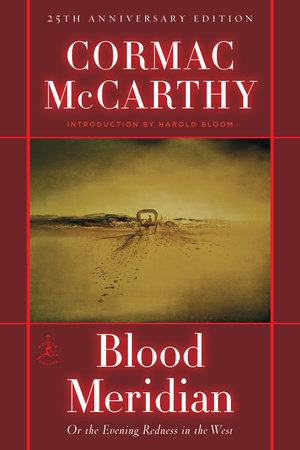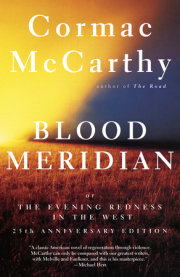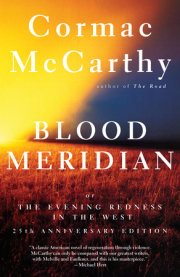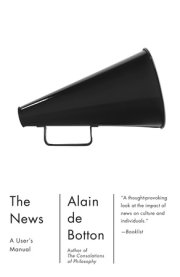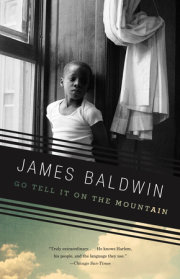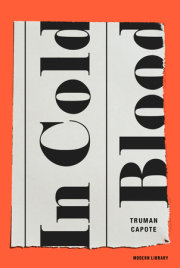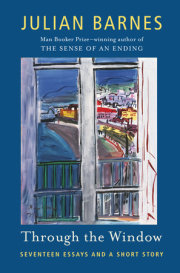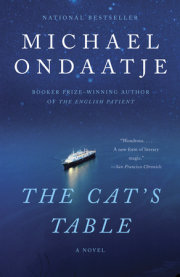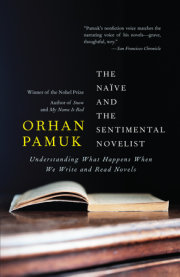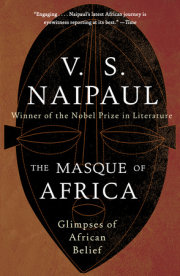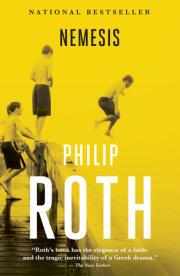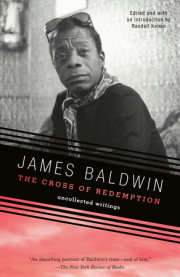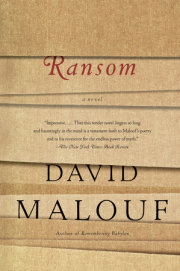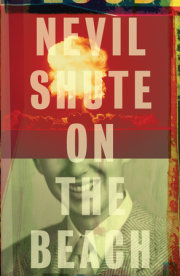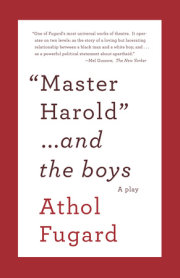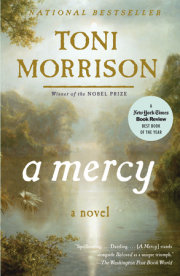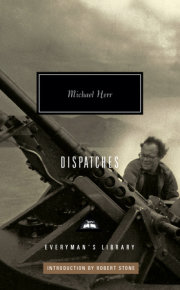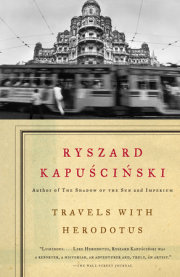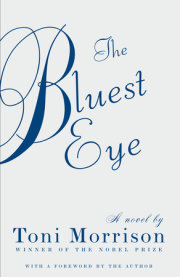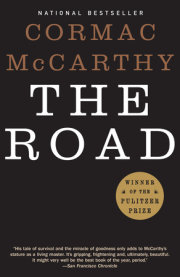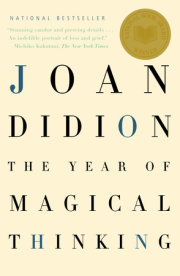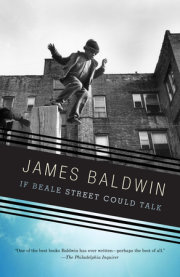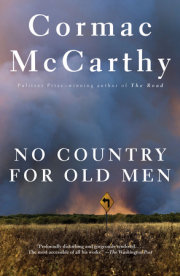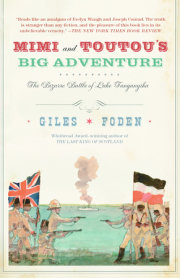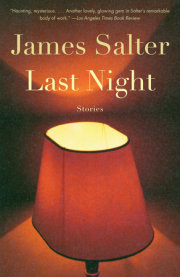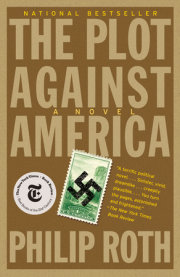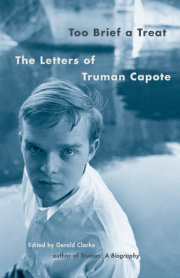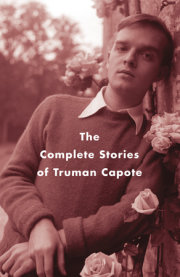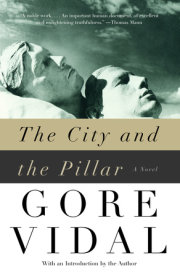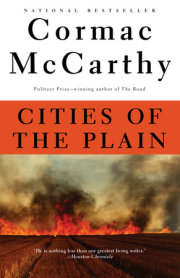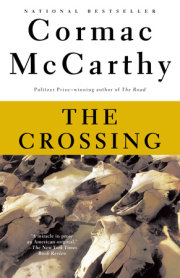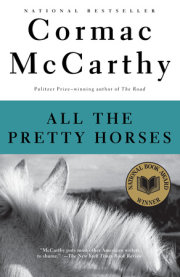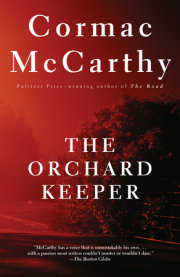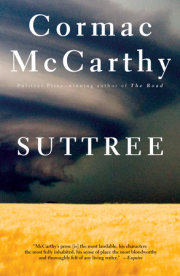Chapter 1Childhood in Tennessee – Runs away – New Orleans – Fights – Is shot – To Galveston – Nacogdoches – The Reverend Green – Judge Holden – An affray – Toadvine – Burning of the hotel – Escape.
See the child. He is pale and thin, he wears a thin and ragged linen shirt. He stokes the scullery fire. Outside lie dark turned fields with rags of snow and darker woods beyond that harbor yet a few last wolves. His folk are known for hewers of wood and drawers of water but in truth his father has been a schoolmaster. He lies in drink, he quotes from poets whose names are now lost. The boy crouches by the fire and watches him.
Night of your birth. Thirty-three. The Leonids they were called. God how the stars did fall. I looked for blackness, holes in the heavens. The Dipper stove.
The mother dead these fourteen years did incubate in her own bosom the creature who would carry her off. The father never speaks her name, the child does not know it. He has a sister in this world that he will not see again. He watches, pale and unwashed. He can neither read nor write and in him broods already a taste for mindless violence. All history present in that visage, the child the father of the man.
At fourteen he runs away. He will not see again the freezing kitchenhouse in the predawn dark. The firewood, the washpots. He wanders west as far as Memphis, a solitary migrant upon that flat and pastoral landscape. Blacks in the fields, lank and stooped, their fingers spiderlike among the bolls of cotton. A shadowed agony in the garden. Against the sun’s declining figures moving in the slower dusk across a paper skyline. A lone dark husbandman pursuing mule and harrow down the rain-blown bottomland toward night.
A year later he is in Saint Louis. He is taken on for New Orleans aboard a flatboat. Forty-two days on the river. At night the steamboats hoot and trudge past through the black waters all alight like cities adrift. They break up the float and sell the lumber and he walks in the streets and hears tongues he has not heard before. He lives in a room above a courtyard behind a tavern and he comes down at night like some fairybook beast to fight with the sailors. He is not big but he has big wrists, big hands. His shoulders are set close. The child’s face is curiously untouched behind the scars, the eyes oddly innocent. They fight with fists, with feet, with bottles or knives. All races, all breeds. Men whose speech sounds like the grunting of apes. Men from lands so far and queer that standing over them where they lie bleeding in the mud he feels mankind itself vindicated.
On a certain night a Maltese boatswain shoots him in the back with a small pistol. Swinging to deal with the man he is shot again just below the heart. The man flees and he leans against the bar with the blood running out of his shirt. The others look away. After a while he sits in the floor.
He lies in a cot in the room upstairs for two weeks while the tavernkeeper’s wife attends him. She brings his meals, she carries out his slops. A hardlooking woman with a wiry body like a man’s. By the time he is mended he has no money to pay her and he leaves in the night and sleeps on the riverbank until he can find a boat that will take him on. The boat is going to Texas.
Only now is the child finally divested of all that he has been.
His origins are become remote as is his destiny and not again in all the world’s turning will there be terrains so wild and barbarous to try whether the stuff of creation may be shaped to man’s will or whether his own heart is not another kind of clay. The passengers are a diffident lot. They cage their eyes and no man asks another what it is that brings him here. He sleeps on the deck, a pilgrim among others. He watches the dim shore rise and fall. Gray seabirds gawking. Flights of pelicans coastwise above the gray swells.
They disembark aboard a lighter, settlers with their chattels, all studying the low coastline, the thin bight of sand and scrub pine swimming in the haze.
He walks through the narrow streets of the port. The air smells of salt and newsawn lumber. At night whores call to him from the dark like souls in want. A week and he is on the move again, a few dollars in his purse that he’s earned, walking the sand roads of the southern night alone, his hands balled in the cotton pockets of his cheap coat. Earthen causeways across the marshland. Egrets in their rookeries white as candles among the moss. The wind has a raw edge to it and leaves lope by the roadside and skelter on in the night fields. He moves north through small settlements and farms, working for day wages and found. He sees a parricide hanged in a crossroads hamlet and the man’s friends run forward and pull his legs and he hangs dead from his rope while urine darkens his trousers.
He works in a sawmill, he works in a diphtheria pesthouse. He takes as pay from a farmer an aged mule and aback this animal in the spring of the year eighteen and forty-nine he rides up through the latterday republic of Fredonia into the town of Nacogdoches.
The Reverend Green had been playing to a full house daily as long as the rain had been falling and the rain had been falling for two weeks. When the kid ducked into the ratty canvas tent there was standing room along the walls, a place or two, and such a heady reek of the wet and bathless that they themselves would sally forth into the downpour now and again for fresh air before the rain drove them in again. He stood with others of his kind along the back wall. The only thing that might have distinguished him in that crowd was that he was not armed.
Neighbors, said the reverend, he couldnt stay out of these here hell, hell, hellholes right here in Nacogdoches. I said to him, said: You goin to take the son of God in there with ye? And he said: Oh no. No I aint. And I said: Dont you know that he said I will foller ye always even unto the end of the road?
Well, he said, I aint askin nobody to go nowheres. And I said: Neighbor, you dont need to ask. He’s a goin to be there with ye ever step of the way whether ye ask it or ye dont. I said: Neighbor, you caint get shed of him. Now. Are you goin to drag him,
him, into that hellhole yonder?
You ever see such a place for rain?
The kid had been watching the reverend. He turned to the man who spoke. He wore long moustaches after the fashion of teamsters and he wore a widebrim hat with a low round crown. He was slightly walleyed and he was watching the kid earnestly as if he’d know his opinion about the rain.
I just got here, said the kid.
Well it beats all I ever seen.
The kid nodded. An enormous man dressed in an oilcloth slicker had entered the tent and removed his hat. He was bald as a stone and he had no trace of beard and he had no brows to his eyes nor lashes to them. He was close on to seven feet in height and he stood smoking a cigar even in this nomadic house of God and he seemed to have removed his hat only to chase the rain from it for now he put it on again.
The reverend had stopped his sermon altogether. There was no sound in the tent. All watched the man. He adjusted the hat and then pushed his way forward as far as the crateboard pulpit where the reverend stood and there he turned to address the reverend’s congregation. His face was serene and strangely childlike. His hands were small. He held them out.
Ladies and gentlemen I feel it my duty to inform you that the man holding this revival is an imposter. He holds no papers of divinity from any institution recognized or improvised. He is altogether devoid of the least qualification to the office he has usurped and has only committed to memory a few passages from the good book for the purpose of lending to his fraudulent sermons some faint flavor of the piety he despises. In truth, the gentleman standing here before you posing as a minister of the Lord is not only totally illiterate but is also wanted by the law in the states of Tennessee, Kentucky, Mississippi, and Arkansas.
Oh God, cried the reverend. Lies, lies! He began reading feverishly from his opened bible.
On a variety of charges the most recent of which involved a girl of eleven years—I said eleven—who had come to him in trust and whom he was surprised in the act of violating while actually clothed in the livery of his God.
A moan swept through the crowd. A lady sank to her knees.
This is him, cried the reverend, sobbing. This is him. The devil. Here he stands.
Let’s hang the turd, called an ugly thug from the gallery to the rear.
Not three weeks before this he was run out of Fort Smith Arkansas for having congress with a goat. Yes lady, that is what I said. Goat.
Why damn my eyes if I wont shoot the son of a bitch, said a man rising at the far side of the tent, and drawing a pistol from his boot he leveled it and fired.
. All rights reserved. No part of this excerpt may be reproduced or reprinted without permission in writing from the publisher.

